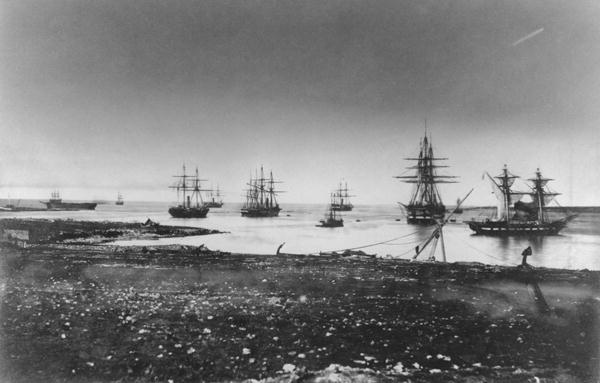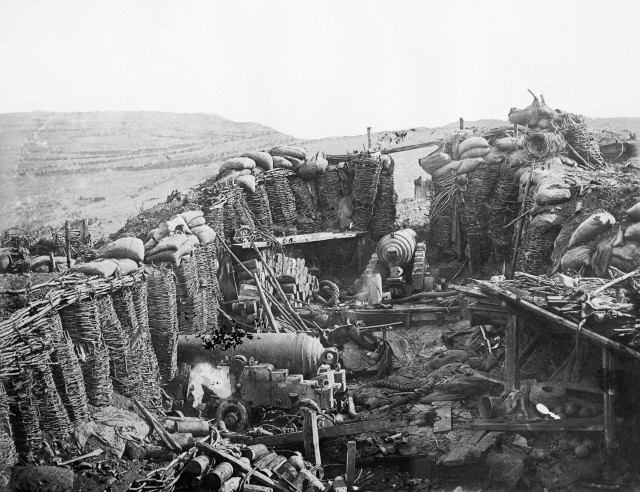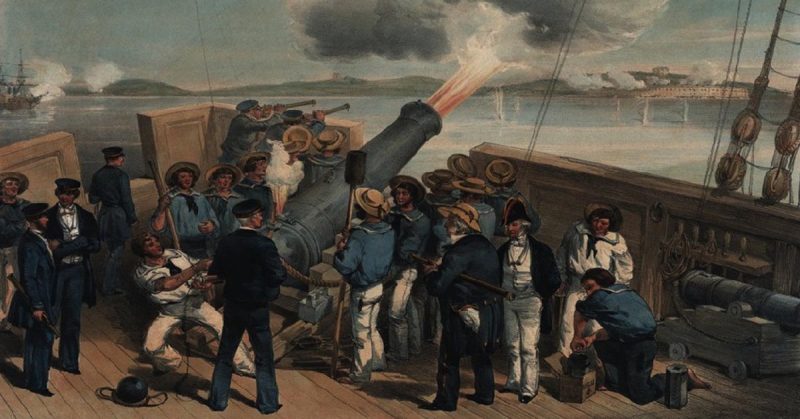Valor in the midst of warfare is nothing new and has been the hallmark of gallant stories throughout history. But with every medal a nation might give to recognized it, someone has to be the first. So why not let it be the one guy who decided not to hit the deck when a live shell from the Crimean War landed on this ship.
Instead, he walked over with unsurpassable calmness, picked it up, and threw it overboard just before it exploded. And while there have been over 1,300 recipients since its inception in 1856 who have demonstrated unspeakable gallantry in the face of death, the first recipient just might have saved an entire ship in the Royal Navy.
A Life at Sea
Charles Davis Lucas was born in 1834 Ireland and would find himself enlisted in the Royal Navy by the age of 13. It was a different time for the Navies of the world then, and it was not at all uncommon for youths to join service on a ship at such a young age.
Lucas would serve aboard the HMS Vengeance at one point and before he was 18 years old he would see combat in the Second Anglo-Burmese War of 1852-53.
By age 20, Lucas had become a mate and was preparing to see action in the upcoming Crimean War. This war would pit an alliance of France, the United Kingdom, the Ottoman Empire and Sardinia against the Russian Empire headed by Nicholas I.
While there was combat in many locations; this war would be fought heavily in the Black Sea area that necessitated a massive Naval presence from the United Kingdom.

Lucas would see action aboard the HMS Hecla at the age of 21 and prove himself to be one of the bravest sailors in the entire Black Sea. Part of a combined English and French fleet, the HMS Hecla was bombarding the Russian fortress of Bomarsund on June 21st, 1854.
The massive fortification boasted 80 guns that laid in wait to pound the approaching fleet as it drew near. But it would only take one shell to allow Mate C.D. Lucas of the HMS Hecla to walk into history.
Someone Had to Do It
As the HMS Hecla drew closer to the fortress, one such shell landed on the deck and sat there hissing and smoking as it was preparing to wreak devastating damage on the crew. They were ordered to hit the deck so as to minimize its toll, but Lucas had other plans.
In what would be described as the exceptional presence of mind and a cool demeanor, Lucas ran over as the fuse was still hissing and smoking, picked it up and threw it overboard just before it blew.
With a thunderous roar, the shell exploded over the side of the ship shooting up a column of water. Awestruck at such unspeakable gallantry, the commanding officer promoted him to a lieutenant that very day.
And while it might be true that someone had to do it, it appeared no one else had even given a second thought to picking up the shell other than the newly promoted Lieutenant Lucas.

Russia would go one to lose the Crimean War after a long siege took Svestpool from the Russians and other nations began to join the coalition against them. Fearing isolation and a massive land campaign from the West, Nicholas I sued for peace shortly before his death. Under heavy terms, Russia was no longer allowed to maintain a Black Sea Navy.
For saving the ship, his crewmates, and thankfully himself, he was the first member of the Commonwealth to be awarded the Victoria Cross. And while the Victoria Cross was not implemented until 1856, it was made retroactive for those who fought and served in the Crimean War.
At the time, it was considered a crucial innovation in that the award would be given without consideration for rank and position. It merely required unspeakable gallantry.
A Worthy Career
Lieutenant Lucas would go on to become Captain Lucas at the end of his storied career and was promoted to Rear Admiral on the retired list. With Britain’s remaining the preeminent World Power for much of his career, Rear Admiral Lucas would go on to see additional action throughout the world.
Not a bad career for the young Irish boy who joined the world’s mightiest navy at the age of 13.
Lucas would even go on to marry an Admiral’s daughter. And this Admiral was none other than Admiral William Hutchens Hall, who was Captain of the HMS Hecla in 1854 at the time of Lucas’ famed heroism.
Perhaps the Admiral thought that the same man who would pick up a live smoking shell off the deck of a ship to save his crewmates would likely be a good man to look after his daughter.
Rear Admiral Lucas died on August 7th, 1914 at the age of 80. His Victoria Cross is on display at the National Maritime Museum in Greenwich, London. Although it must be noted that this is not the original as that was inexplicably left on a train never to be recovered.
And while the first Victoria Cross itself might be lost to history, the man who earned most certainly is not. Those who would follow his path of gallantry and receive the Commonwealths highest military honor have ensured that we will always be reminded of those who went before.
